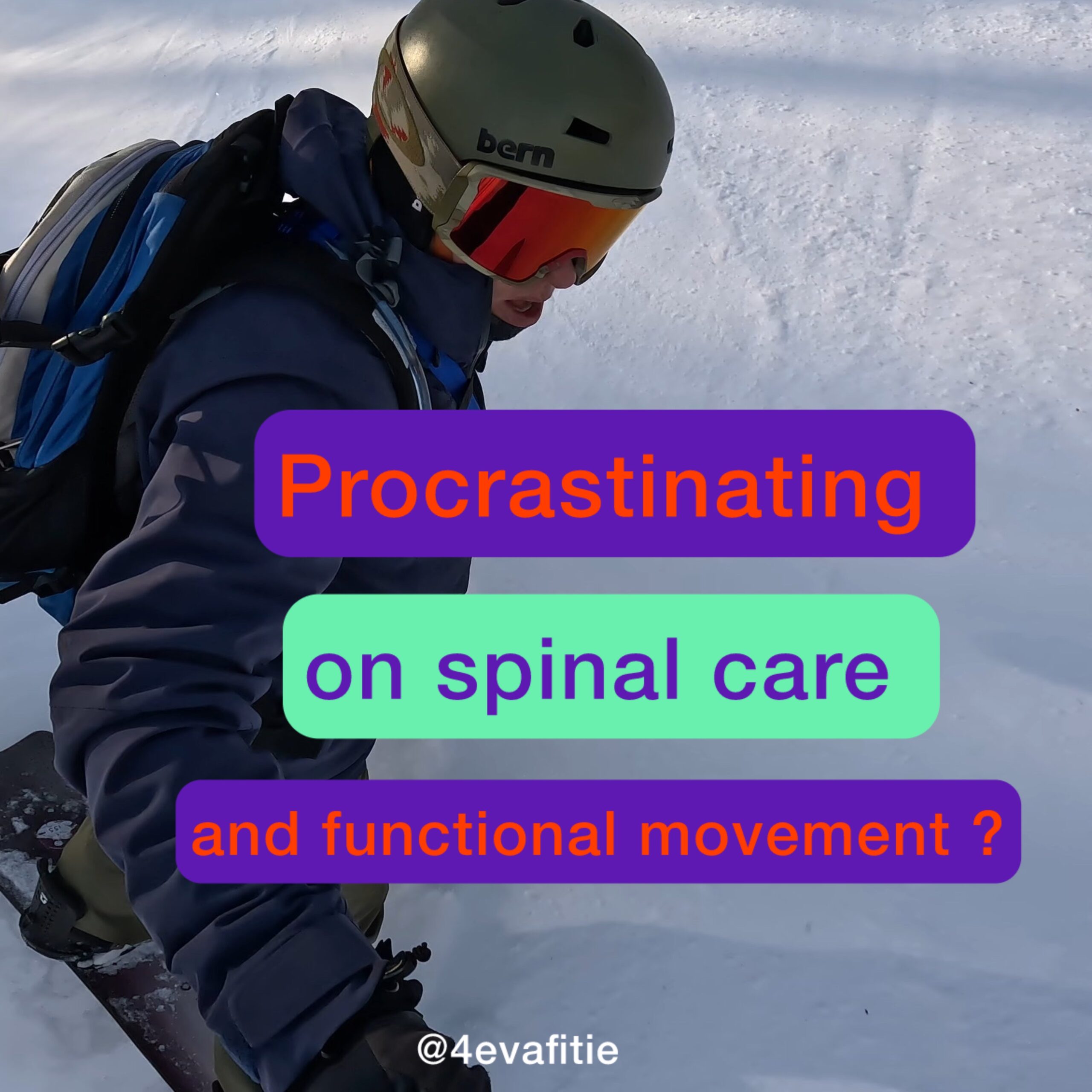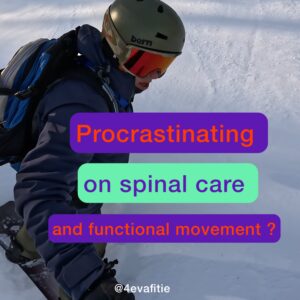
Procrastinating on spinal care and functional movement?
Have you ever thought about the consequences of regular procrastinating on spinal care and functional movement?
Unless you did, it is time to look at the facts.
Regular exercises that aim for spinal support, postural alignment, body functionality, and energy within is not a matter of your choice, it is a must unless you want to end up weak, in pain, badly injured, etc.
What is stopping you from choosing right for yourself?

![]()
- Poor Posture: Regularly procrastinating on spinal care and functional movement exercises can lead to poor posture over time. Neglecting exercises that strengthen the core muscles and support proper spinal alignment may result in slouching or hunching, contributing to chronic back pain and discomfort.
- Muscle Weakness: Without consistent functional movement and core exercises, the muscles that support the spine become weak and deconditioned. This can lead to instability in the spine, increasing the risk of injury during everyday activities or physical exertion.
- Increased Risk of Injury: Weak core muscles and poor posture put additional strain on the spine and surrounding structures, making individuals more susceptible to injuries such as muscle strains, ligament sprains, and herniated discs. Over time, these injuries can become chronic and debilitating.
- Degenerative Disc Disease: Lack of proper spinal care and functional movement exercises can accelerate the degenerative process of the spinal discs. Without regular movement and exercise to promote spinal health, the discs may degenerate more rapidly, leading to pain, stiffness, and reduced mobility.
- Joint Dysfunction: Procrastination in performing postural exercises and functional movements can contribute to joint dysfunction, particularly in the spine. Without adequate support from surrounding muscles, the spinal joints may become misaligned or restricted in movement, resulting in discomfort and decreased range of motion.
- Chronic Back Pain: Neglecting spinal care and core exercises can contribute to the development of chronic back pain. Weak muscles and poor posture put constant strain on the spine, leading to persistent discomfort that affects daily activities and quality of life.
- Reduced Flexibility: Without regular functional movement exercises, flexibility in the spine and surrounding muscles may decrease over time. This can result in stiffness, limited range of motion, and difficulty performing activities that require bending, twisting, or reaching.
- Impaired Balance and Stability: Core muscles play a crucial role in maintaining balance and stability, especially during dynamic movements and weight-bearing activities. Procrastination in performing core exercises can compromise balance and stability, increasing the risk of falls and injuries.
- Impact on Overall Health: Poor spinal health and lack of functional movement can have broader implications for overall health and well-being. Chronic back pain and discomfort can negatively affect mood, sleep quality, and daily functioning, leading to decreased productivity and lower quality of life.
- Long-Term Disability: Ignoring the importance of spinal care and functional movement exercises can ultimately lead to long-term disability. Chronic back pain, muscle weakness, and spinal instability may progress to the point where individuals are unable to perform daily tasks or engage in physical activities, significantly impacting their independence and quality of life.
JOIN FUNCTIONAL BALL PILATES CLASSES WITH ME – TO FUNCTION WELL IN THE BODY AND MIND!
Details HERE – CLICK HERE

You may also like

3 Signs You’re Overwhelmed by Your Daily Tasks
6 June, 2024

3 signs that you are held back by fear of rejection
29 May, 2024

3 Signs you’re afraid of taking risks
25 May, 2024
